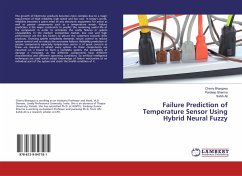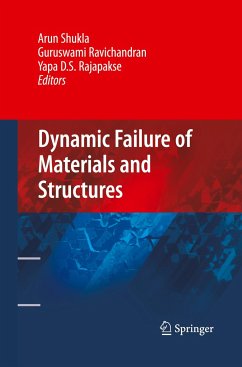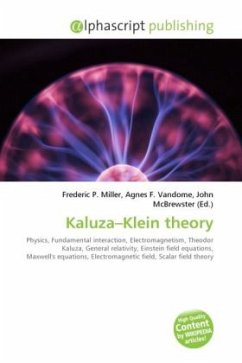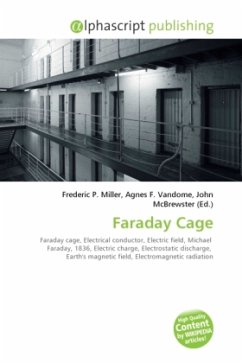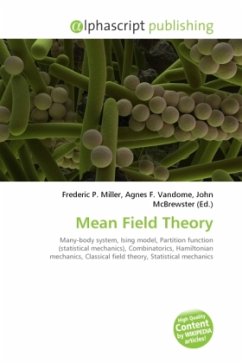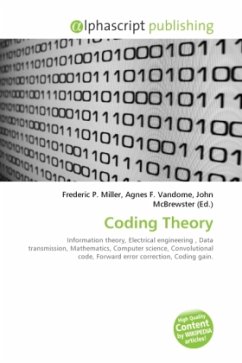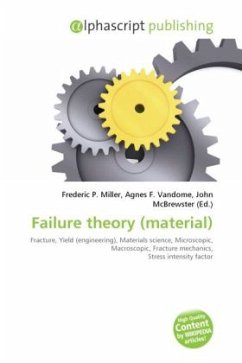
Failure theory (material)
Versandkostenfrei!
Versandfertig in 6-10 Tagen
23,99 €
inkl. MwSt.

PAYBACK Punkte
12 °P sammeln!
High Quality Content by WIKIPEDIA articles! Failure theory is the science of predicting the conditions under which solid materials lose their strength under the action of external loads. The failure of a material is usually classified into brittle failure (fracture) or ductile failure (yield). Depending on the conditions (such as temperature, state of stress, loading rate) most materials can fail in a brittle or ductile manner or both. However, for most practical situations, a material may be classified as either brittle or ductile. Though failure theory has been in development for over 200 ye...
High Quality Content by WIKIPEDIA articles! Failure theory is the science of predicting the conditions under which solid materials lose their strength under the action of external loads. The failure of a material is usually classified into brittle failure (fracture) or ductile failure (yield). Depending on the conditions (such as temperature, state of stress, loading rate) most materials can fail in a brittle or ductile manner or both. However, for most practical situations, a material may be classified as either brittle or ductile. Though failure theory has been in development for over 200 years, its level of acceptability is yet to reach that of continuum mechanics. In mathematical terms, failure theory is expressed in the form of various failure criteria which are valid for specific materials. Failure criteria are functions in stress or strain space which separate "failed" states from "unfailed" states. A precise physical definition of a "failed" state is not easily quantifiedand several working definitions are in use in the engineering community. Quite often, phenomenological failure criteria of the same form are used to predict brittle failure and ductile yield.




